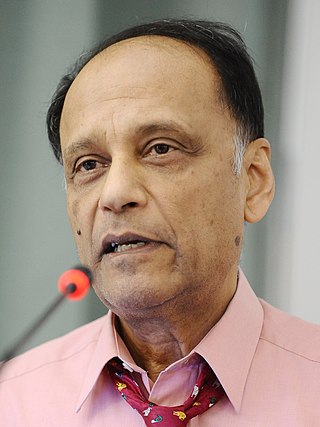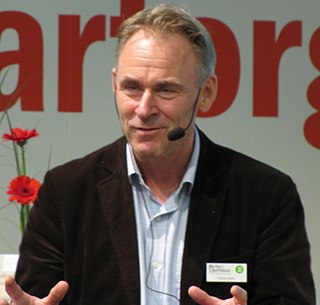Related Research Articles

Umeå University is a public research university located in Umeå, in the mid-northern region of Sweden. The university was founded in 1965 and is the fifth oldest within Sweden's present borders.
The Umeå Institute of Technology or Tekniska högskolan i Umeå is part of the Faculty of Science and Technology at Umeå University. The Institute offers a wide range of study programmes, some of them not to be found in any other part of Sweden. Research in engineering is gradually being expanded. The faculty's traditionally strong position in natural sciences form a base on which new technology research is built.

Cardiff University is a public research university in Cardiff, Wales, United Kingdom. It was established in 1883 as the University College of South Wales and Monmouthshire and became a founding college of the University of Wales in 1893. It merged with the University of Wales Institute of Science and Technology (UWIST) in 1988 as the University of Wales College, Cardiff. In 1997 it received degree-awarding powers, but held them in abeyance. It adopted the operating name of Cardiff University in 1999; this became its legal name in 2005, when it became an independent university awarding its own degrees.

Sir Partha Sarathi Dasgupta is an Indian-British economist who was Frank Ramsey Professor of Economics at the University of Cambridge, United Kingdom, and a fellow of St John's College, Cambridge.

The European University Institute (EUI) is an international postgraduate and post-doctoral teaching and research institute and an independent body of the European Union with juridical personality, established by the member states to contribute to cultural and scientific development in the social sciences, in a European perspective. EUI is designated as an international organisation. It is located in the hills above Florence in Fiesole, Italy. In 2021, EUI's School of Transnational Governance, with its flagship graduate and executive programmes, moved to the Casino Mediceo di San Marco, which is a late-Renaissance or Mannerist style palace in the historic centre of Florence.

Sarah Margaret "Molly" Scott Cato is a British Green politician, economist and activist. She served as a Member of the European Parliament (MEP) for South West England from 2014 to 2020. From 2012, until her election as an MEP, she was Professor of Strategy and Sustainability at the University of Roehampton. Scott Cato speaks for the Green Party on finance and the EU, and is known for her work in the field of co-operative studies. She has published on green economics, localism and anti-capitalism, and has contributed to works on the risks of nuclear power, the use of which she strongly opposes.
John Loughlin is a British-based academic and educator from Northern Ireland, and a noted specialist in European territorial politics. After being educated in St. Malachy's College, he spent several years as a Cistercian monk at Our Lady of Bethlehem Abbey, Portglenone, Northern Ireland, where he carried out the usual studies for the priesthood in philosophy, theology and biblical studies. He is currently a Fellow at Blackfriars, Oxford. He is an Emeritus Fellow and former Tutor at St Edmund's College, where he was Director of the Von Hügel Institute, and a Senior Fellow and Affiliated Lecturer in the Department of Politics and International Studies, both at the University of Cambridge.

Presented annually since 1991, the Stockholm Water Prize is an award that recognizes outstanding achievements in water related activities. Over the past three decades, Stockholm Water Prize Laureates have come from across the world and represented a wide range of professions, disciplines and activities in the field of water.
Earth system governance is a recently developed paradigm that builds on earlier notions of environmental policy and nature conservation, but puts these into the broader context of human-induced transformations of the entire earth system.

Prof. Carl Folke, is a trans-disciplinary environmental scientist and a member of the Royal Swedish Academy of Sciences. He is a specialist in economics, resilience, and social-ecological systems. He is Science Director of the Stockholm Resilience Centre and the Director of the Beijer Institute of Ecological Economics of the Royal Swedish Academy of Sciences.

Hans Emiel Aloysius Bruyninckx is a Belgian political scientist and international relations scholar specialized in international environmental governance and European environmental politics. He has headed the European Environment Agency since 2013. While in this position, he is on leave from his posts as Professor of International Relations and Global Environmental Governance, Institute for International and European Policy; and Director, Research Institute for Work and Society, both at the Katholieke Universiteit Leuven.

Sverker Sörlin is a Swedish historian of ideas, professor in environmental history, and writer.
Stepan Wood is a Canadian lawyer and legal scholar specializing in environmental law and transnational law who is a law professor at Osgoode Hall Law School. He was a Jean Monnet Fellow at the European University Institute in Florence in 2010/2011 and clerked at the Supreme Court of Canada after receiving his first law degree.

The contributions of women in climate change have received increasing attention in the early 21st century. Feedback from women and the issues faced by women have been described as "imperative" by the United Nations and "critical" by the Population Reference Bureau. A report by the World Health Organization concluded that incorporating gender-based analysis would "provide more effective climate change mitigation and adaptation."
Rick L. Edgeman is an American statistician and quality professional, and Professor of Sustainability & Performance at AU Herning and in the Interdisciplinary Center for Organizational Architecture, at Aarhus University, School of Business and Social Sciences. Concurrently, he is President's Distinguished Scholar, Professor & Chair of Management, and Center for Entrepreneurship Director in the Robbins College of Business & Entrepreneurship at Fort Hays State University in Hays, Kansas. He primarily known for his work on Quality Management, Performance Management, and within the recent years Sustainable Enterprise Excellence (SEE) and is an Academician of the International Academy of Quality.
The King Carl XVI Gustaf Professorship in Environmental Science is a prestigious, selective appointment awarded by the Royal Swedish Academy of Sciences, to one or two people annually. it began in 1996. Elected Professors spend one year at a Swedish University.

Melissa Leach, is a British geographer and social anthropologist. She studies sustainability and development concerns in policy-making and has a focus on the politics of science and technology of Africa. As of 2017 she was the Director of the Institute of Development Studies (IDS) located on the University of Sussex campus.
Renaud Dehousse is a Belgian lawyer and professor, born on the 2 June 1960 in Liège, Belgium. He is currently President of the European University Institute (EUI) in Florence, Italy.
Beatrice Crona is an ecologist, a professor at Stockholm University, and the Executive Director of the Program on Global Economic Dynamics and the Biosphere at the Royal Swedish Academy of Sciences.
References
- 1 2 "New Book from Sustainable Places Co-director Susan Baker". Cardiff University. 30 September 2015. Retrieved 31 May 2017.
- 1 2 "Professor Susan Baker: Research". Cardiff University. Retrieved 31 May 2017.
- 1 2 3 "Taking her palce [sic] at the Swedish Royal Court". Irish Times. 27 March 2003. Retrieved 31 May 2017.
- ↑ "Dependency, ideology and the industrial policy of Fianna Fail in Ireland, 1958–1972". European University Institute. Retrieved 1 June 2017.
- 1 2 "Kunglig miljöprofessur till Umeå universitet". Forskning.se. 3 December 2002. Retrieved 5 June 2017.
- ↑ "Appointments". Times Higher Education. 7 February 2003. Retrieved 3 June 2017.
- ↑ "Royal guest professors invited to unique environmental symposium in Stockholm". Umeå University. 21 March 2012. Retrieved 1 June 2017.
- ↑ "International honour for advancing environmental social science research". Cardiff University. 25 February 2013. Retrieved 31 May 2017.
- ↑ "KSLA välkomnar nya ledamöter i Allmänna avdelningen". Royal Swedish Academy of Agriculture and Forestry. 6 December 2012. Retrieved 31 May 2017.
- ↑ "In pursuit of sustainable development: New governance at the sub-national level in Europe". Stockholm Resilience Centre, Stockholm University. Retrieved 31 May 2017.
- ↑ "History of the NESS Conferences". Nordic Environmental Social Science Conference 2013, University of Copenhagen. Retrieved 5 June 2017.
- ↑ Gordon, Jacqueline (22 June 2016). "Sean Loughlin (SPS '82) looks back". European University Institute. Retrieved 31 May 2017.